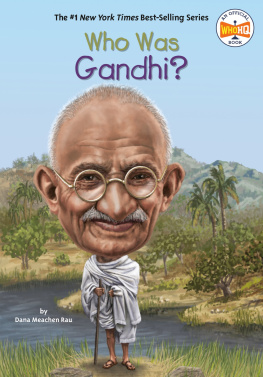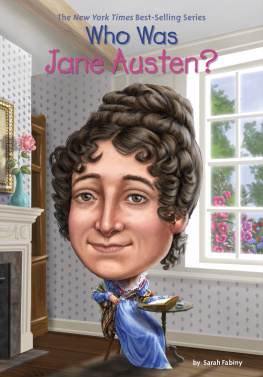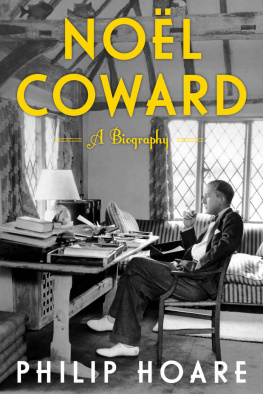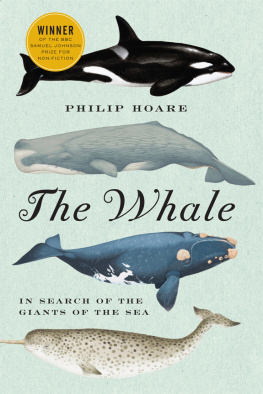Wilder Perkins - Hoare and the matter of treason
Here you can read online Wilder Perkins - Hoare and the matter of treason full text of the book (entire story) in english for free. Download pdf and epub, get meaning, cover and reviews about this ebook. genre: Detective and thriller. Description of the work, (preface) as well as reviews are available. Best literature library LitArk.com created for fans of good reading and offers a wide selection of genres:
Romance novel
Science fiction
Adventure
Detective
Science
History
Home and family
Prose
Art
Politics
Computer
Non-fiction
Religion
Business
Children
Humor
Choose a favorite category and find really read worthwhile books. Enjoy immersion in the world of imagination, feel the emotions of the characters or learn something new for yourself, make an fascinating discovery.

- Book:Hoare and the matter of treason
- Author:
- Genre:
- Rating:3 / 5
- Favourites:Add to favourites
- Your mark:
- 60
- 1
- 2
- 3
- 4
- 5
Hoare and the matter of treason: summary, description and annotation
We offer to read an annotation, description, summary or preface (depends on what the author of the book "Hoare and the matter of treason" wrote himself). If you haven't found the necessary information about the book — write in the comments, we will try to find it.
Hoare and the matter of treason — read online for free the complete book (whole text) full work
Below is the text of the book, divided by pages. System saving the place of the last page read, allows you to conveniently read the book "Hoare and the matter of treason" online for free, without having to search again every time where you left off. Put a bookmark, and you can go to the page where you finished reading at any time.
Font size:
Interval:
Bookmark:
Wilder Perkins
Hoare and the matter of treason
Chapter I
A marriage has been announced, and will shortly take place, between Mrs. Eleanor Graves (nee Swan) and Commander Bartholomew Hoare of the Navy.
Naval Chronicle, 18 November 1805Shall I lift you aboard, Miss Austen?" Bartholomew Hoare whispered with all his force into the cold, hazy morning air. Hoare had been deprived of his full voice eleven years ago when he was struck in the throat by a musket ball while defending His Majesty George Ill's plan. He saw the cloud of his breath blow away with the stiff breeze.
Now, although some years had passed since he had faced ocean weather, Hoare was still generally brown. It was his natural color. He was long, stringy, wiry, and, for the next few minutes, still a solitary, lonely widower.
"Thank you very kindly, sir," Miss Austen replied with some asperity, "but after all, with two brothers in the navy, I must already be quite familiar, must I not, with the process of boarding and leaving a ship upon visiting them, especially in harbor? And especially when, like this one, it is a very small ship?"
So saying, she withdrew her mitted hands from her muff, leaving it to dangle around her neck by its ribbon harness. She reached up, took hold of the handiest of the lanyards bracing down Royal Duke's shrouds, placed one leg in the entry port and hoisted herself easily out of the wherry. With her other hand, the one with the reticule dangling on the wrist, she reached out and grasped the hand that her host, the groom, extended her. The hood of her cloak, which she had drawn over her brown hair, presumably to guard its precious curl against the wind, fell back.
When boarding from a small boat, even Jane Austen could not wholly preserve her modesty; the stocking she revealed over her surprisingly well-turned ankle was not a blue one but a scalding cochineal red, embroidered with a seasonal clock of holly leaves.
"Delighted to welcome you aboard," Hoare whispered with an insincere smile, "particularly on this joyful occasion." In the face of her unaccountable distaste for him and for the connection he was about to make, he found it difficult to summon up genuine warmth.
"And delighted to come aboard, sir," she replied, "although I do think it rather thoughtless of dear Eleanor not to have summoned me aboard before, so that I could assist her in preparing for the ceremony. Pray take me to her immediately," she added in a commanding voice, without so much as a polite exclamation about Royal Duke's charming and shipshape appearance.
Fearing that his smile was degenerating into an accommodating smirk, Hoare gave her his arm and escorted her the few feet farther aft to where the hatch leading below to his quarters lay open over a newly carpeted ladder. The lady turned, smiled coolly back at Hoare, and waited for him to precede her below, so that if she were to lose her footing despite her assurances of sure-footedness, she would fall upon him instead of the deck beneath. It was clear to Hoare that she remained less than enthusiastic about her schoolroom friend's selection of a second spouse.
These past days, he had found himself regretting even more the contingency that had required him to hand over almost half his spacious living quarters to the brig's homing pigeons. Now, hidden behind a bulkhead of hastily painted deal, Royal Duke's graceful glazed stern ports and miniature gallery were aflutter with cooing Columbidal instead of chattering female humans; the remaining rump of a cabin was dark, airless, tainted with a faint, inappropriate odor of guano that seeped through the partition. A flutter of another kind came from behind the curtain rigged athwartships that, while it shrank Hoare's usable space still further, protected Eleanor Graves and her attendants from the prying eyes of men.
Miss Austen disappeared behind the curtain, where her appearance was greeted with shrill, happy voices. Seeing that she was in safe hands, Hoare returned topside to deal with the next arrivals.
Royal Duke lay cozily at a mooring less than a cable's length offshore, protected by Weymouth's exiguous mole. She was already lying low in the water with the weight of wedding guests who had come aboard. More, Hoare knew, were yet to come. He shuddered for his ship's center of gravity. Was his little brig fated to loll over at her mooring and convert the wedding into a mass drowning? "Sunk by matrimony, with all hands." The navy would never live it down.
From the moment of the announcement appearing in the Naval Chronicle, Hoare's time had not been his own. Messages of congratulation flowed in. Even Duke of Clarence, Admiral of the Fleet Prince William, sent to wish him happy. Not only, it seemed to Hoare, had he gained a number of well-wishers in the naval community; Eleanor Graves, too, was known to it. Hoare had believed he had kept his passion secret, but it was not so. Even with its body of officers expanded beyond all peacetime belief for the endless war with the French, the Royal Navy was a family, and it took care of its own.
Hoare's wedding was to be sanctified by the Reverend Arthur Gladden, recently called to serving a flock in Maiden Bradley, some miles southwest of Warminster in Wiltshire. Before taking orders, Mr. Gladden had been third lieutenant in the ill-fated, newly commissioned frigate Vantage. And once a naval officer, always a naval officer.
More pertinent to the occasion: rightly or wrongly, the Gladden family credited Hoare with Arthur's acquittal of the murder of Adam Hay, Vantage's first and only captain. Moreover, Hoare had assisted materially in helping Miss Anne Gladden rebuff a powerful, elderly suitor. These kindnesses, neither of which Hoare had seen as more than his duty, the Gladden family had taken as major benefactions. Indeed, Lady Caroline, mother of the family, had been heard to refer to Bartholomew Hoare as the tribe's Savior, in a reverent voice that suggested that she expected him not merely to cruise the waters of the Channel, but to walk upon them.
Accordingly, the young rector had insisted on conducting today's ceremony Mr. Gladden had taken the further liberty of bringing his little sister with him. The Honorable Miss Anne Gladden was a beauty; she was also wee-little taller than Jenny, Hoare's girl-child ward. Since Harvey Clay, Hoare's lieutenant in Royal Duke, was likewise a minikin, Hoare had hopes of making a match between the two and had previously arranged for Clay to be invited to Broadmead for inspection. So now, when Hoare returned on deck, he was pleased to see the couple engrossed in each other. When he went over to them, Miss Gladden looked up at him with a dazzling smile.
"My heart is quite broken today, you know, Captain," she said.
"Desolated, I'm sure, Miss Anne," Hoare whispered in reply, "but, after all, hearts are ours to break, be broken, and heal." He could not believe what he was saying. Courtly exchanges of this kind did not become him. He must be exalted.
Since his rescue of Miss Gladden had involved a mock betrothal between them, there were those among the ton who, upon learning that he had given the poor little thing her conge in order to make this apparently more disadvantageous connection, had looked upon him with perplexity mixed into their coolness. However, upon discovering that Miss Gladden's own relatives, and the lady herself, continued to welcome him warmly, they had quickly subsided and gone off in search of juicier scandals.
Just then, Hoare realized that Mr. Clay, engrossed as he was with the young lady, had failed to note a barge approaching from a trim frigate newly anchored just to seaward of Royal Duke. The frigate's broad pendant was blue. The oncoming admiral, then, would be Rear Admiral Sir George Hardcastle, KB, Port Admiral in Portsmouth. Sir George was, to all intents and purposes, Hoare's master.
Font size:
Interval:
Bookmark:
Similar books «Hoare and the matter of treason»
Look at similar books to Hoare and the matter of treason. We have selected literature similar in name and meaning in the hope of providing readers with more options to find new, interesting, not yet read works.
Discussion, reviews of the book Hoare and the matter of treason and just readers' own opinions. Leave your comments, write what you think about the work, its meaning or the main characters. Specify what exactly you liked and what you didn't like, and why you think so.







